Nootropics Supplements
Nootropics, often referred to as ‘smart drugs’ or ‘cognitive enhancers,’ are substances that aim to improve cognitive functions such as memory, creativity, or motivation in healthy individuals. In recent years, their popularity has seen a significant surge, driven by increasing awareness of their potential benefits and a growing demand for performance-enhancing supplements. Let’s explore how nootropics can enhance your learning capabilities.
Featured Nootropics Products
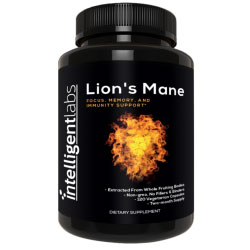
This powerful supplement is designed to help you unlock your full cognitive potential. By enhancing concentration, memory, and learning, it acts as a catalyst for success in all areas of life.
from $26.99
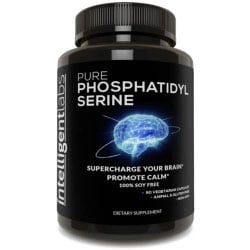
Phosphatidylserine plays a pivotal role in facilitating communication between brain cells, thereby significantly contributing to memory and other brain functions. With half the body’s stores of this essential compound located in the brain, it’s clear why PS is so integral to our mental processes.
from $22.49
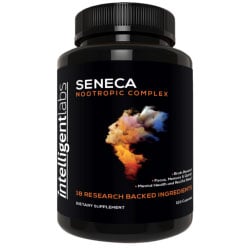
The Seneca Nootropic Complex is your go-to supplement for comprehensive brain support. This powerful formula contains 18 research-backed natural ingredients, ensuring you’re getting the best that nature has to offer.
from $54.00
Table of Contents
Nootropics Definition
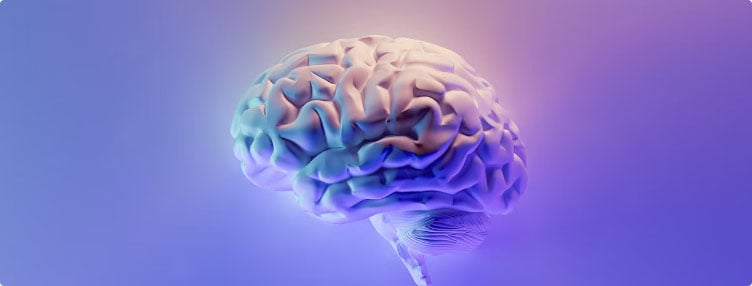
Nootropics are a group of natural or synthetic substances with a unique purpose – to amplify cognitive functions. They’re designed to boost mental performance, enhancing elements like memory, creativity, and motivation in healthy individuals.
The primary objective of these substances is to facilitate mental agility, enabling the brain to operate at its optimum level. By potentially improving neural processes, nootropics aim to increase focus, enhance memory function, and foster creative thinking.
History and Origin of Nootropics
We will explore the history and origin of nootropics, from their inception to their current status in the realm of health and wellness. Let’s see how everything started.
Traditional Roots and Modern Adaptations

Dr. Corneliu E. Giurgea, a Romanian psychologist and chemist, first introduced the concept of nootropics. He used the Greek words ‘nous’ to coin the term ‘nootropic’, which means ‘mind,’ and ‘trepein’, meaning ‘to bend.’ The first nootropic he developed was Piracetam, a compound designed to enhance memory and cognitive ability.
Since then, the field of nootropics has expanded significantly. It now encompasses various substances, both natural and synthetic, that claim to boost cognitive functions such as memory, creativity, or motivation in healthy individuals. Over the years, these ‘smart drugs’ have gained popularity among students, professionals, and athletes seeking to enhance their performance.
However, it’s important to note that while some nootropics have been scientifically proven to provide cognitive benefits, many others are still under investigation. As research continues, our understanding of these fascinating substances and their potential impacts on the brain continues to evolve.
How Nootropics Gained Popularity

These smart drugs have been gaining significant popularity in recent years. Nootropic supplements, which claim to enhance cognitive functions such as memory and intelligence, have attracted substantial attention from various demographics, including students, professionals, and athletes seeking to boost their performance.
The global nootropics market has seen an impressive growth trend. Valued at $10.7 billion in 2021, it’s projected to grow at a compound annual growth rate (CAGR) of around 14% through 2030 (Strategex). This surge in popularity can be attributed to their alleged ability to improve focus, clear thinking, and overall brain health.
How Do Nootropics Work?
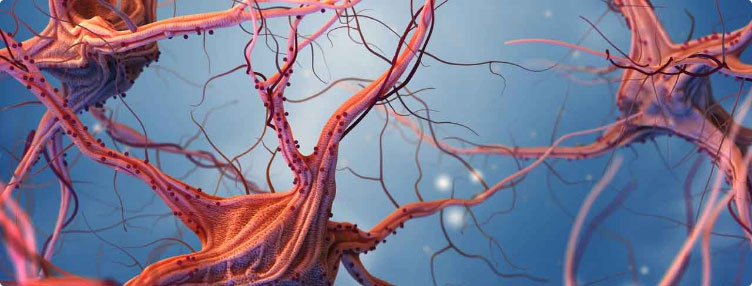
Nootropic supplements work by targeting specific pathways in the brain to boost mental performance. They are both natural and synthetic substances that can positively impact mental skills.
Brain Chemistry and Nootropic Interaction
Certain nootropics can enhance cerebral blood flow. By increasing blood flow to the brain, these substances can deliver more oxygen, glucose, and nutrients to nerve cells, improving their function and boosting cognitive abilities like focus and memory.
Some can stimulate the growth of new neurons, a process known as neurogenesis. This can lead to improved brain function and has been linked to better mood and memory.
Many nootropics have antioxidant properties that protect brain cells from damage caused by free radicals. They may also enhance the brain’s resilience to stress and aging.
They can also influence brain waves, the patterns of electrical activity in the brain. For example, they may promote alpha waves associated with relaxed alertness, improving creativity and stress management.
The Role of Neurotransmitters and Nootropics
One of the ways nootropics work is by increasing the levels of neurotransmitters in the brain that are involved in cognitive function. Neurotransmitters are the brain’s chemical messengers and play a vital role in regulating mood, concentration, memory, and other mental abilities. By influencing these neurotransmitters, nootropics can enhance various aspects of cognitive function.
Types of Nootropic Supplements
Nootropic supplements are a diverse group of cognitive enhancers designed to improve various aspects of brain function. These can range from memory and focus to mood and creativity. They come in many forms and can be classified into several types based on their origin, mechanism of action, or the specific cognitive functions they target. Here’s a brief introduction to the different types:
-
-
Natural vs. Synthetic
-
Natural Nootropics are substances that occur naturally in certain foods, herbs, and plants. Examples include caffeine (found in coffee and tea), L-theanine (found in green tea), and Omega-3 fatty acids (found in fish oil). On the other hand, we have synthetic Nootropics developed in a lab and man-made. They include drugs like Adderall and Modafinil, used to treat conditions like attention deficit hyperactivity disorder but are sometimes used off-label for cognitive enhancement.
-
-
Adaptogens
-
Adaptogens are a unique class of plants, herbs, and fungi known for their potential to help the body resist different physical, chemical, or biological stressors. They are often used in herbal medicine and are becoming increasingly popular in nootropic supplements due to their potential cognitive benefits. Examples include ashwagandha, Rhodiola Rosea, and ginseng.
-
-
Racetams
-
Racetams are a family of synthetic nootropics known for their potential to boost brain function. The most famous member of this group is piracetam, which was the first compound of this class to be synthesized. Piracetam is often used as a cognitive enhancer and is believed to improve memory and learning ability.
Racetams influence the cholinergic system, which is involved in memory formation and learning. They increase the sensitivity of the receptors in this system, thereby enhancing its effectiveness.
-
-
Choline Sources
-
Choline is an essential nutrient that plays a vital role in brain function and overall health. In the context of nootropics, choline sources are often used to enhance cognitive functions like memory, attention, and mood.
Benefits of Nootropic Supplements
These cognitive enhancers have gained popularity over recent years due to their potential benefits in improving memory, cognitive performance, focus, creativity, and overall brain function. Here’s a brief introduction to the benefits of brain supplements.

Enhancing Memory and Learning
Nootropics can play a significant role in enhancing both short-term and long-term memory. Some nootropics, like Ginkgo Biloba and Bacopa Monnieri, have been shown to support memory recall and increase the brain’s processing speed. Other nootropics like phosphatidylserine can improve the brain’s ability to store new information and facilitate communication between brain cells, thereby aiding learning processes.

Improving Focus and Attention
Staying focused and maintaining attention over extended periods can be challenging. Nootropics such as caffeine and L-Theanine can help enhance concentration levels and maintain mental clarity and stamina. Prescription drugs are sometimes used to promote wakefulness and enhance focus, particularly in individuals with attention disorders.

Mood Regulation and Stress Reduction
Brain supplements can also play a role in mood regulation and stress reduction. Certain nootropics exert anti-inflammatory properties, protect the brain against toxins, promote healthy aging, and increase neuroplasticity. These effects can contribute to balanced mood states and reduced stress levels.

Boosting Creativity and Mental Fluidity
Creativity involves generating new ideas, and mental fluidity refers to the ease with which we shift from one thought to another. Nootropics like Aniracetam and Phenylpiracetam have been suggested to promote these aspects of cognition, potentially leading to improved problem-solving skills and creative thought.
Side Effects – Are Supplements Safe?
Supplements, including nootropics, can benefit many people, improving their mental health, but they also carry potential risks. The safety of supplements depends on various factors such as their chemical composition, how they work in the body, how they’re prepared, and the dosage taken.
One of the primary concerns with supplements is that they can interact with other substances, including over-the-counter and prescription medications. For instance, some supplements can increase the risk of bleeding, affect response to anesthesia, or alter the effectiveness of certain medications.
Moreover, while dietary supplements are regulated by the U.S. Food and Drug Administration (FDA), they are not subject to the same rigorous testing and regulation as pharmaceutical drugs. This means that the safety and efficacy of these products can vary widely, and some may contain contaminants or not contain the ingredients they claim to.
Choosing the Right Supplement
Choosing the right nootropic supplement can be complex, as it largely depends on individual goals, health status, and personal tolerance. Here are some key steps to consider when selecting smart drugs.
-
-
Understanding Your Personal Needs
-
Choosing the right nootropic supplement isn’t a one-size-fits-all situation. Everyone’s brain chemistry is unique, and what works for one person may not work for another. This is why it’s essential to understand your personal needs before deciding on a nootropic. Are you looking to boost memory, enhance focus, reduce stress, improve mental energy, or increase creativity? Identifying your specific goals can help narrow down which nootropics might be beneficial. Additionally, it’s essential to consider your overall health, lifestyle, and any medications or other supplements you’re currently taking. Always consult with a healthcare provider before starting any new supplement regimen.
-
-
Importance of Quality and Purity in Supplements
-
The quality and purity of nootropics can significantly impact their effectiveness and safety. Unfortunately, not all supplements on the market meet high-quality standards; some may even contain harmful contaminants. When choosing a nootropic, look for products from reputable manufacturers that provide transparency about their ingredients. Consider brands that have their products independently tested by third-party labs to verify their purity and potency. Avoid supplements that contain unnecessary fillers or additives.
-
-
Long-Term Use and Cycling Considerations
-
While many people use nootropics for their potential immediate effects, it’s important to consider the implications of long-term use. Some nootropics may lose their effectiveness over time as the body builds up tolerance. Others may have side effects that only appear with prolonged use. To mitigate these risks, consider “cycling” your nootropics – taking them for a certain period, then taking a break before starting again. This can help prevent tolerance build-up and give your body a chance to reset.
Are Nootropics Legal?

Most natural nootropics, such as Bacopa Monnieri and Ginkgo Biloba, are sold as dietary supplements and are legal in many countries, including the United States. They do not require a prescription and are widely available over the counter.
Prescription nootropics, such as modafinil and methylphenidate, are FDA-approved and are used to treat ADHD or Alzheimer’s disease. These are legal when prescribed by a healthcare professional.
However, some synthetic nootropics fall into a legal gray area. For example, certain substances may be legal for personal use but illegal to sell or distribute without proper authorization. Some nootropics are also not allowed to be sold as “dietary supplements” if they are not natural herbs, vitamins, or amino acids.
It’s important to note that just because a product is legal does not necessarily mean it is safe or effective.
Are nootropics FDA-approved?
The FDA (Food and Drug Administration) in the United States does not typically approve dietary supplements, including nootropics. This means that these products are not evaluated for safety and effectiveness in the same way that prescription drugs are.
Some specific substances often included in nootropic supplements, such as caffeine and L-Theanine, are recognized as safe by the FDA. However, other ingredients, particularly synthetic ones, may not have been thoroughly evaluated.
Certain prescription medications used to improve brain function and treat mild cognitive impairment are indeed FDA-approved, but they are intended to treat specific medical conditions such as narcolepsy and ADHD, not for general cognitive enhancement.
FAQ’s
Are nootropics real or a scam?
While some nootropics are legal to use in the U.S., it’s important to note that just because a product is legal doesn’t necessarily mean it is safe or effective.
Nootropics are substances that claim to improve memory, creativity, and focus. However, the effectiveness of nootropics can vary widely, and their legitimacy is a topic of ongoing debate.
There is evidence that prescription nootropics can be effective therapeutic tools for those with specific medical conditions.
However, over-the-counter nootropics, often sold as dietary supplements, are not regulated by the Food and Drug Administration (FDA). This means they don’t undergo the same rigorous testing for safety and efficacy as prescription medications do. While some studies suggest certain nootropics can enhance cognition, others find little to no benefit for healthy individuals.
Are nootropics addictive?
The addictive potential of nootropics can vary significantly based on the specific substance in question. Some nootropics, particularly prescription ones such as Provigil (modafinil), are as addictive as other stimulants and can potentially cause long-term damage to the brain.
Certain nootropics can lead to tolerance, which means that more of the substance is required over time to achieve the same effect. This can potentially lead to dependence or addiction.
However, not all nootropics carry the same risk. Many nootropics, like Ginkgo Biloba and American ginseng, are generally considered safe for regular use, and most individuals will not develop a tolerance.
Nevertheless, it’s important to approach the use of these supplements with caution and under the guidance of a healthcare provider. Even though some nootropics may enhance cognitive function in the short term, long-term use could lead to adverse effects, including potential addiction.
Are nootropics safe during pregnancy?
While some vitamins contained in nootropics are considered safe, many common nootropic ingredients are not recommended for pregnant women.
For instance, certain nootropics should be avoided during pregnancy due to their potential side effects, including Black Cohosh and Goldenseal. Strong prescription stimulants and other nootropics are also generally recommended to be avoided during pregnancy unless necessary.
While good nourishment can lead to healthier and smarter kids, taking nootropics while breastfeeding is not recommended due to insufficient evidence regarding its safety for pregnant and nursing women.
It’s also worth noting that some ingredients common in nootropics can benefit pregnant women, but it’s essential to consult with a healthcare provider before starting any new supplement regimen during pregnancy.
While some nootropics may be safe during pregnancy, many are not recommended due to potential risks or lack of research on their impact on pregnancy.
Are nootropics good for anxiety?
Nootropics have garnered attention for their potential to alleviate anxiety. Various types of nootropics are reported to have different effects on anxiety and stress levels, but it’s important to note that individual responses can vary. Always consult a healthcare provider before starting any new supplement regimen, especially if you’re dealing with anxiety.
Are nootropics good for ADHD?
Nootropics may enhance cognitive function and are being explored as potential aids for ADHD. Some research suggests that certain nootropics might help manage ADHD symptoms.
Natural nootropics, such as Ginkgo Biloba and caffeine, have also been suggested as potentially beneficial for ADHD.
Ginkgo Biloba, for instance, is sometimes used as a complementary treatment for ADHD patients, particularly those highly sensitive and easily overstimulated.
Phosphatidylserine, vitamin B6, L-Theanine, and Maritime Pine Bark Extract are among the best nootropics for attention deficit disorder.
What is the strongest nootropic?
The strongest nootropic can vary depending on the specific requirements and individual responses of different people. However, based on recent rankings and reviews, some of the most potent nootropics include those containing ingredients designed to support various aspects of cognitive function. These ingredients often include substances such as Bacopa Monnieri, Alpha GPC, L-Theanine, and Rhodiola Rosea, among others.
It’s also worth noting that some nootropics are specifically formulated to enhance certain aspects of cognition. For instance, some might be particularly strong in boosting memory and supporting healthy brain function, while others may focus more on improving focus or reducing mild cognitive impairment or anxiety.
